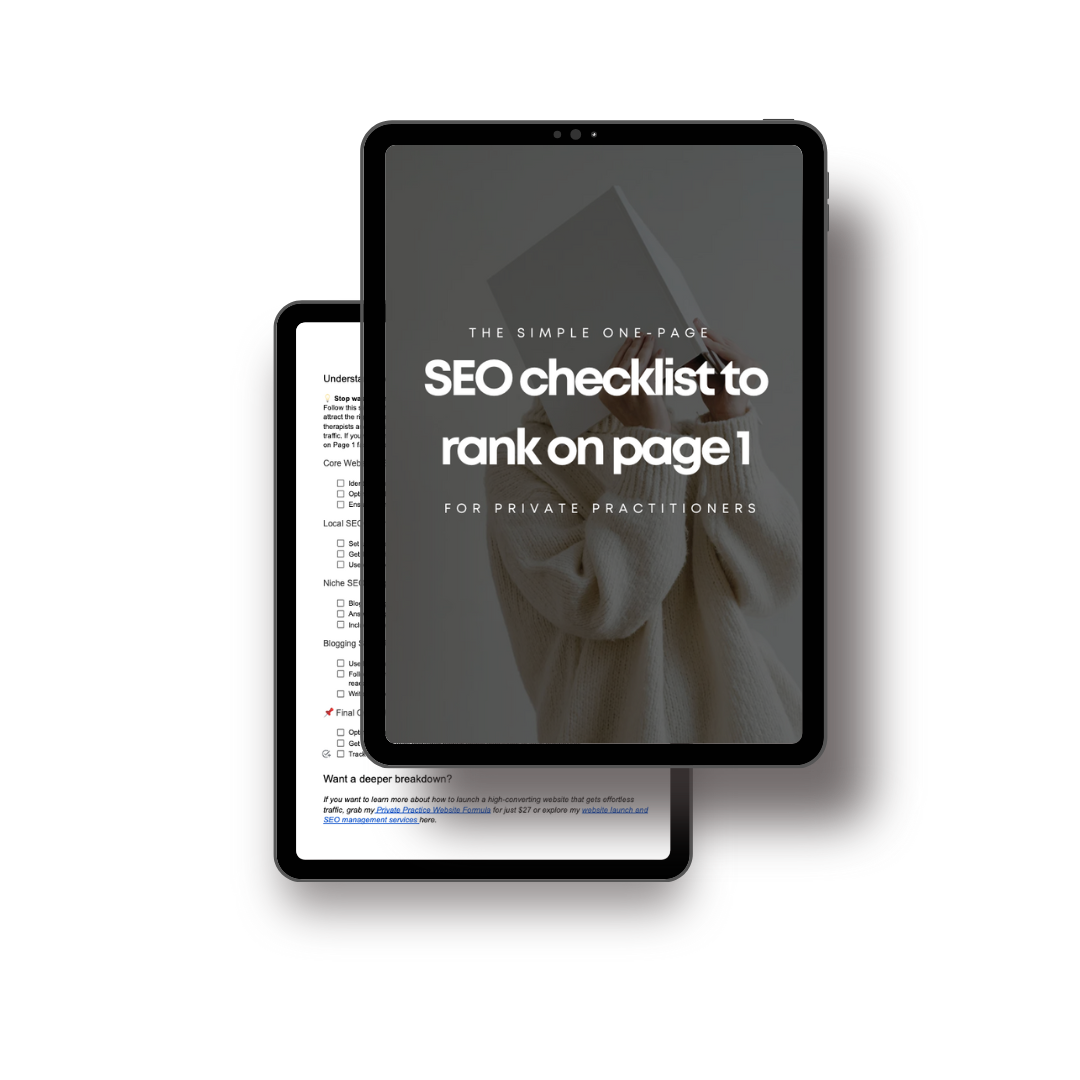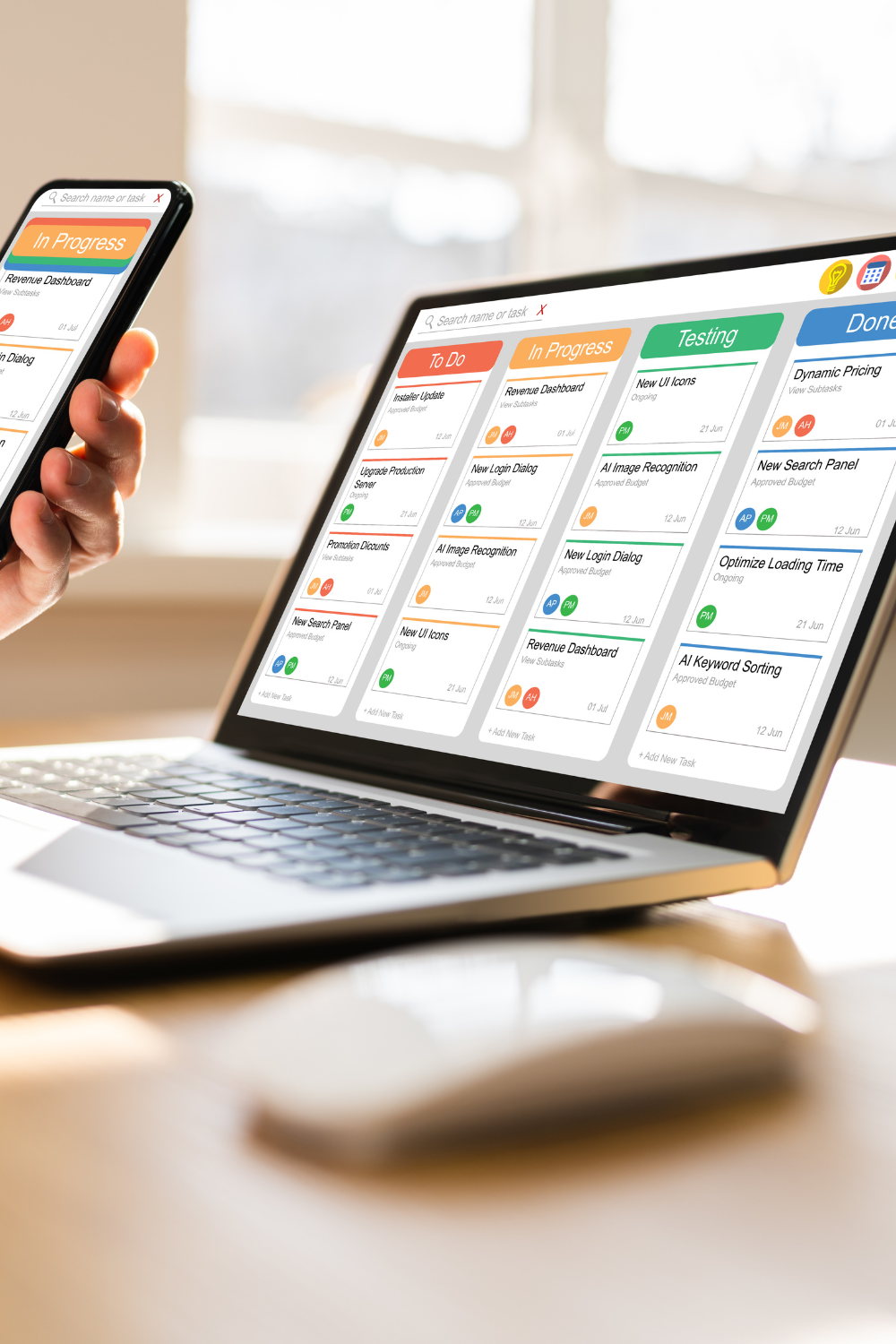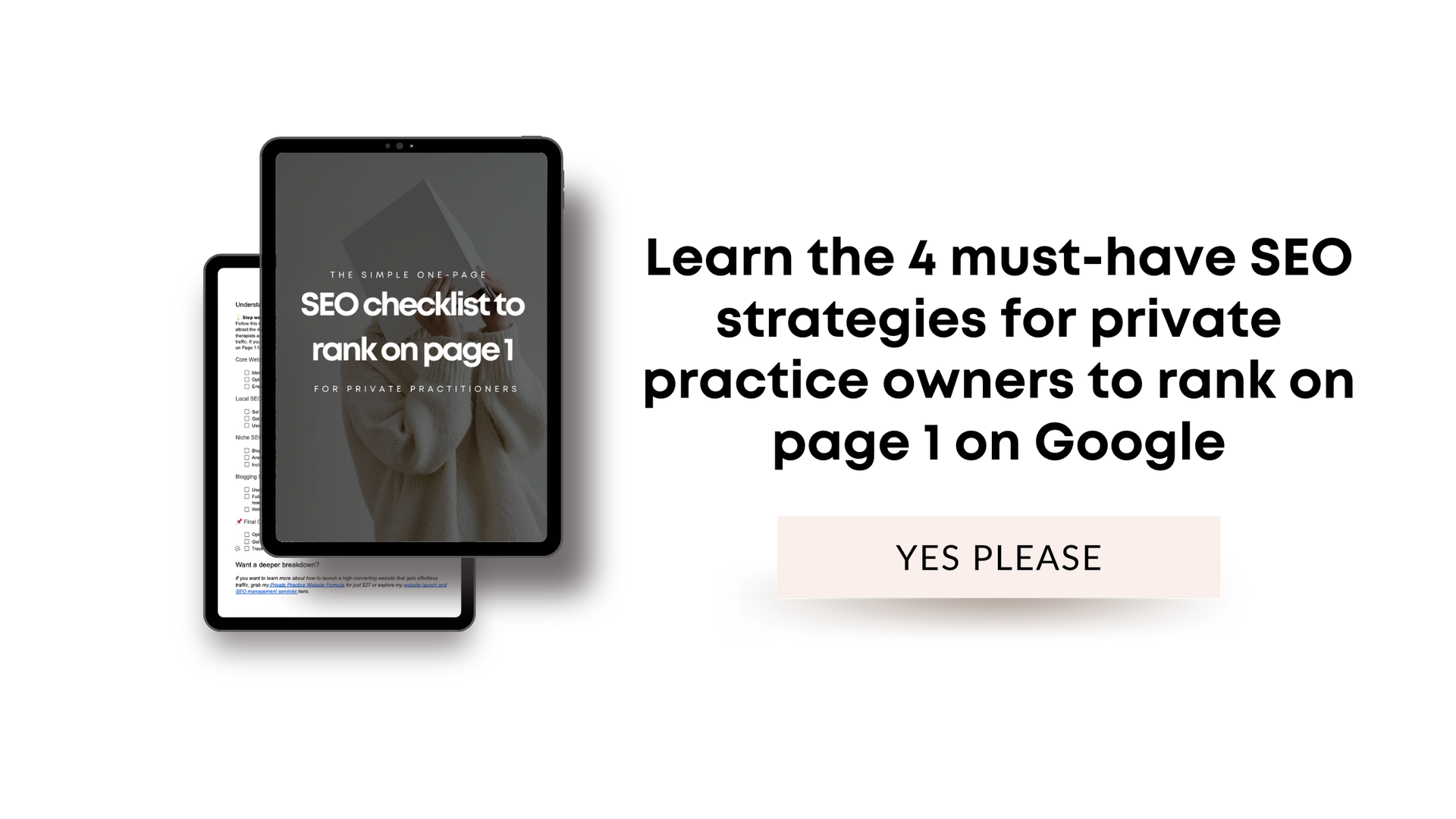The best CRM for therapists: The system I recommend to all my clients
Why therapists need more than just a practice management system
Running a successful private practice requires more than just great clinical skills. Beyond providing therapy, you’re also responsible for managing inquiries, following up with leads, booking consultations, and nurturing client relationships. Many therapists rely on practice management software (PMS) for scheduling and documentation, but PMS tools don’t help you attract and retain clients—and that’s where a CRM (Customer Relationship Management) system comes in.
If you’ve ever:
- Missed out on potential clients because you didn’t follow up in time
- Lost track of email inquiries in your inbox
- Struggled to manage marketing and client outreach
- Felt overwhelmed by juggling multiple tech tools
Then it’s time to consider a CRM designed for therapists—one that streamlines client communication, automates follow-ups, and helps you grow your practice without stress.
As a web designer for therapists, I integrate HighLevel (affiliate link) into my clients’ websites and tech stacks to ensure long-term, sustainable growth. In this guide, I’ll cover:
- What is a CRM and why do therapists need one?
- The difference between a CRM and practice management software
- What to consider in a CRM for therapists
- Why I recommend HighLevel and if it’s worth it for private practices
- Other companies that use HighLevel (Brighter Vision, Therapy Flow, and my own)
- Why a boutique, done-for-you approach can benefit your practice
What is a CRM and why do therapists need one?
A Customer Relationship Management (CRM) system is a tool that helps businesses manage their leads, clients, and communication workflows in one place. For therapists, a CRM can:
- Capture leads from your website and automate follow-ups
- Send appointment reminders to reduce no-shows
- Create email and text campaigns to nurture potential clients
- Track client interactions so you always know where someone is in the process
- Manage marketing campaigns (Google reviews, email newsletters, etc.)
A CRM simplifies all of this by automating the time-consuming tasks therapists often struggle with, freeing you to focus on your clients.
CRM vs. Practice Management Software: What’s the difference?
Therapists often ask: Why do I need a CRM if I already have practice management software (PMS)? The answer lies in what each system is designed for.
| Feature | CRM (e.g., HighLevel) | Practice Management Software (e.g., SimplePractice) |
|---|---|---|
| Lead Management | ✅ Yes | ❌ No |
| Automated Follow-Ups | ✅ Yes | ❌ No |
| Email & SMS Marketing | ✅ Yes | ❌ No |
| Online Scheduling | ✅ Yes | ✅ Yes |
| Client Documentation & EHR | ❌ No | ✅ Yes |
| Billing & Insurance Claims | ❌ No | ✅ Yes |
A PMS is essential for clinical work, but it doesn’t help you grow your practice. A CRM fills that gap, ensuring your website inquiries turn into booked sessions without you needing to manually follow up.
Companies that use a CRM or offer other monthly services to therapists
Many well-known therapy business platforms whitelabel HighLevel, meaning they use its core technology under their own branding. Some major companies using HighLevel include:
Natalia Maganda
- Personalized, boutique service for therapists
- Done-for-you setup (website + CRM + SEO)
- Monthly SEO & marketing support for consistent growth
- One-on-one guidance with a tailored approach
Therapy Flow
- Designed for therapists looking to scale their practice
- Includes marketing and client acquisition tools
- Helps therapists automate workflows and lead nurturing
On the other hand Brighter Vision has their own blogging services and social media tools, they don't specifically market a CRM on their website but they provide hyper-specific solutions for therapists that you can check out too.
Brighter Vision
- Well-known provider of custom therapist websites
- Offers integrated marketing tools
- Includes SEO services and ongoing support
These platforms provide valuable tools for private practitioners, ensuring they can focus more on therapy while streamlining business operations.
Why I recommend HighLevel for therapists
HighLevel is a powerful, all-in-one CRM that replaces multiple tools and streamlines your client communication, marketing, and lead nurturing. Here’s why I recommend it:
- Appointment booking system with automations and reminders
- Lead tracking so you never miss a potential client
- Sales pipeline so you can see how leads convert from lead magnet to intro calls to clients
- Advanced lead gen forms and segmentation to best qualify your leads prior to getting intro calls
- Email marketing campaigns and automations so you can build evergreen nurturing for every new lead and nurture them with a weekly newsletter
- Online courses to build passive income streams when you need to
It has everything you need to start, grow and scale your business with a robust marketing ecosystem.
Unlike generic CRMs, HighLevel is designed to support service-based businesses, making it an ideal fit for therapists.
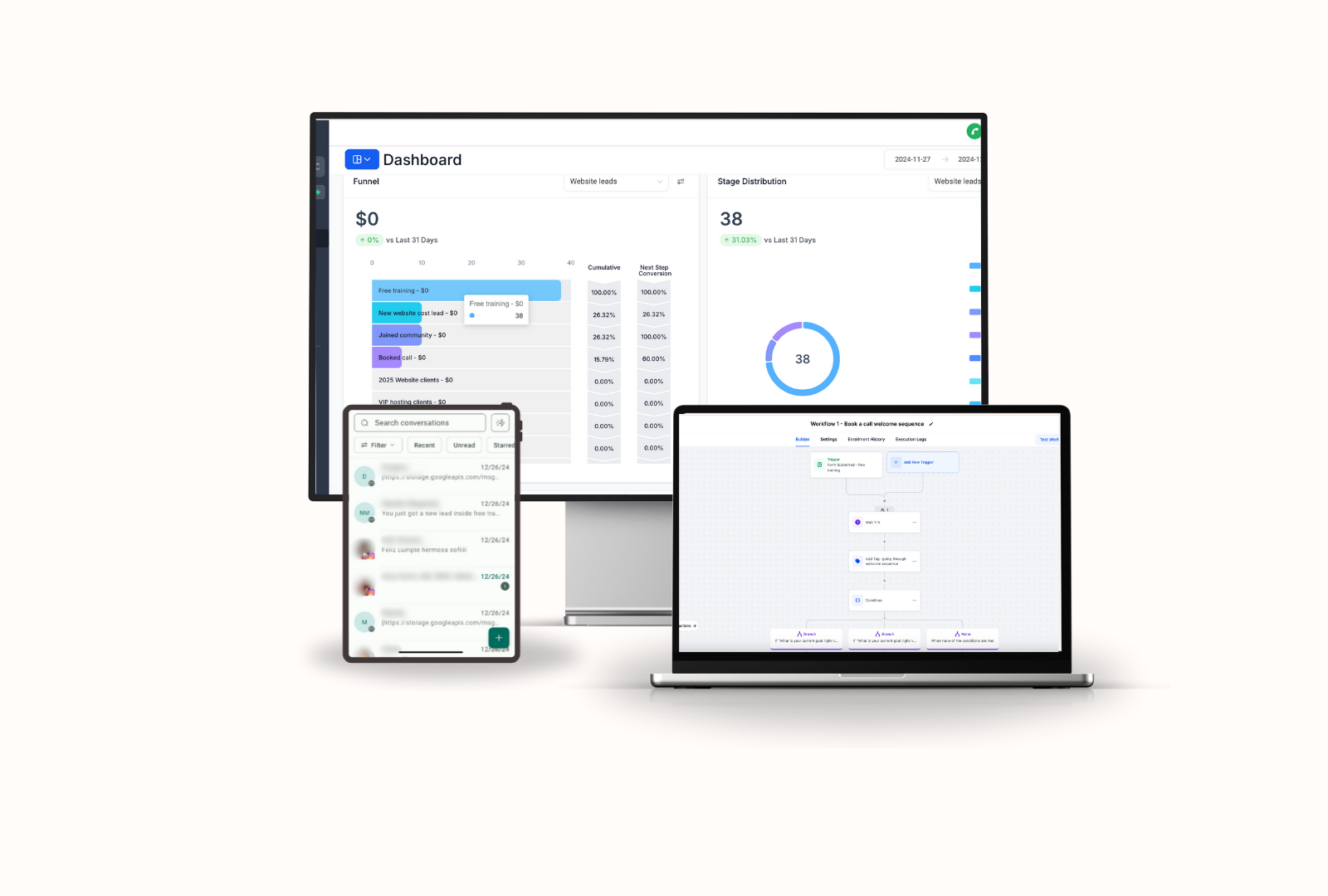
Final thoughts: The best CRM for therapists
A CRM can transform how you manage inquiries, nurture leads, and grow your practice without the stress of manual follow-ups. While large companies offer CRMs, working with a boutique web designer like me ensures your entire tech stack—website, CRM, and SEO—works seamlessly together.
If you’re ready to implement a CRM that actually helps you grow, let's talk. I’ll handle everything—from website design to HighLevel integration and ongoing SEO—so you can focus on what you do best: helping your clients.
Related reads therapist marketing:
- The best practices in mental health marketing
- The profitable therapy rate increase letter template
- Therapy advertising simplified and how to build trust with your website
- The stress free way to build passive income for therapists
- Handling therapy no shows: fees, policies and tips to protect your practice
- Therapist email essentials: How to setup, secure and leverage your inbox
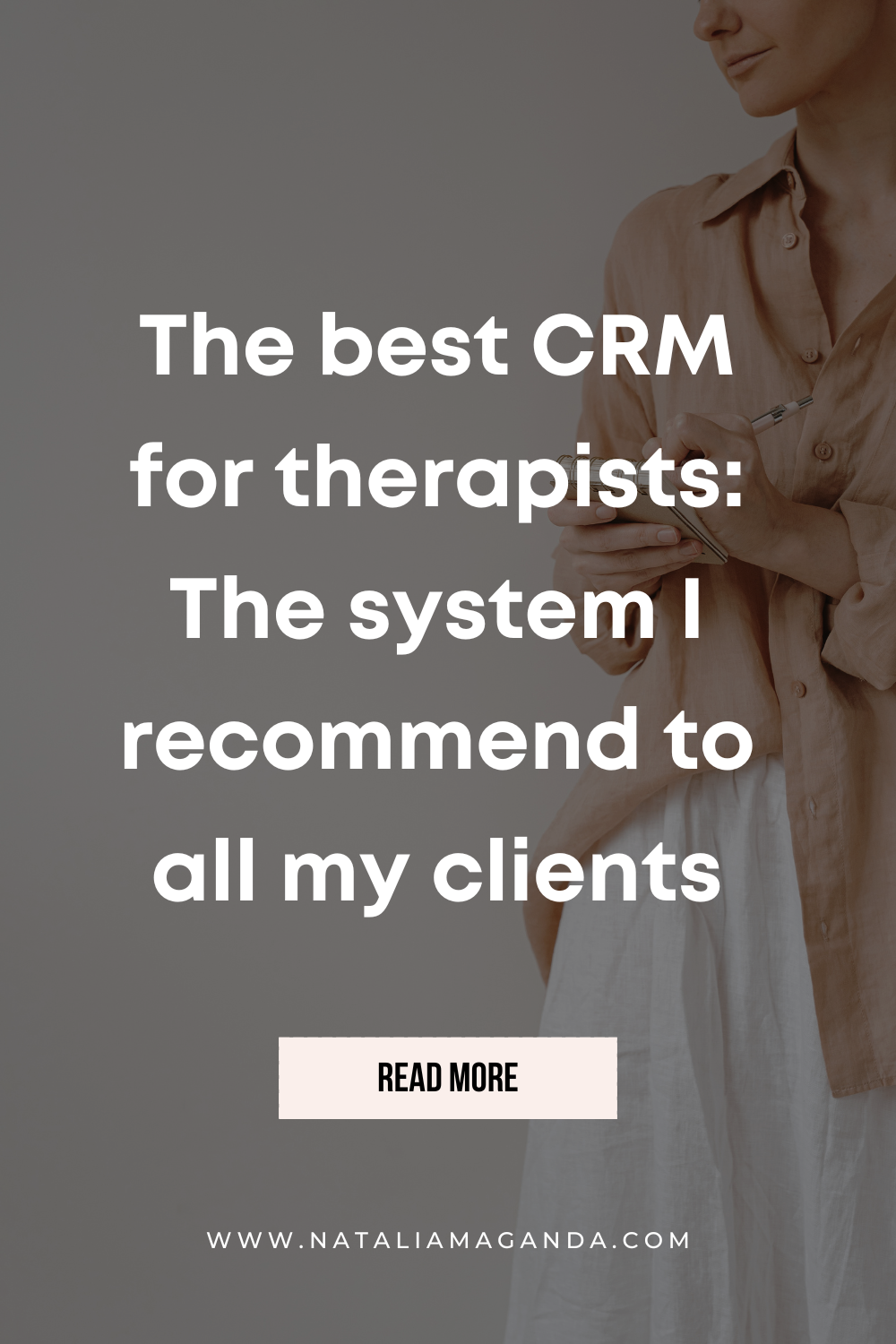
* AI Disclosure: This content may contain sections generated with AI with the purpose of providing you with condensed helpful and relevant content, however all personal opinions are 100% human made as well as the blog post structure, outline and key takeaways.
* Affiliate Disclosure: Some of the links on www.nataliamaganda.com may contain affiliate links meaning that I will get a commission for recommending products at no extra cost to you.

hello! i'm natalia
Latina, web design expert for mental health professionals.
I help ambitious life coaches, therapists and holistic leaders amplify their magic, gain visibility, and simplify their marketing efforts through strategic web design and content.
